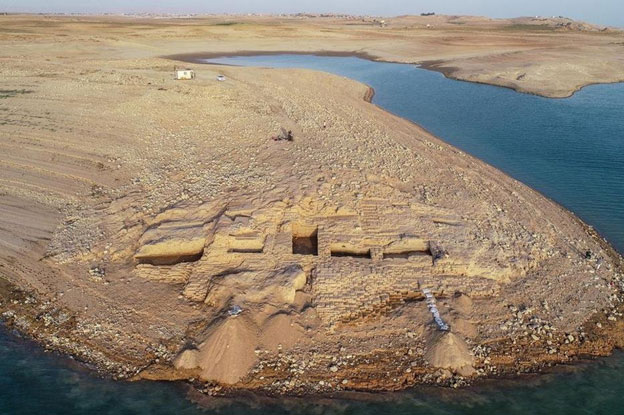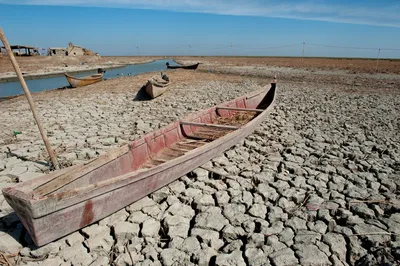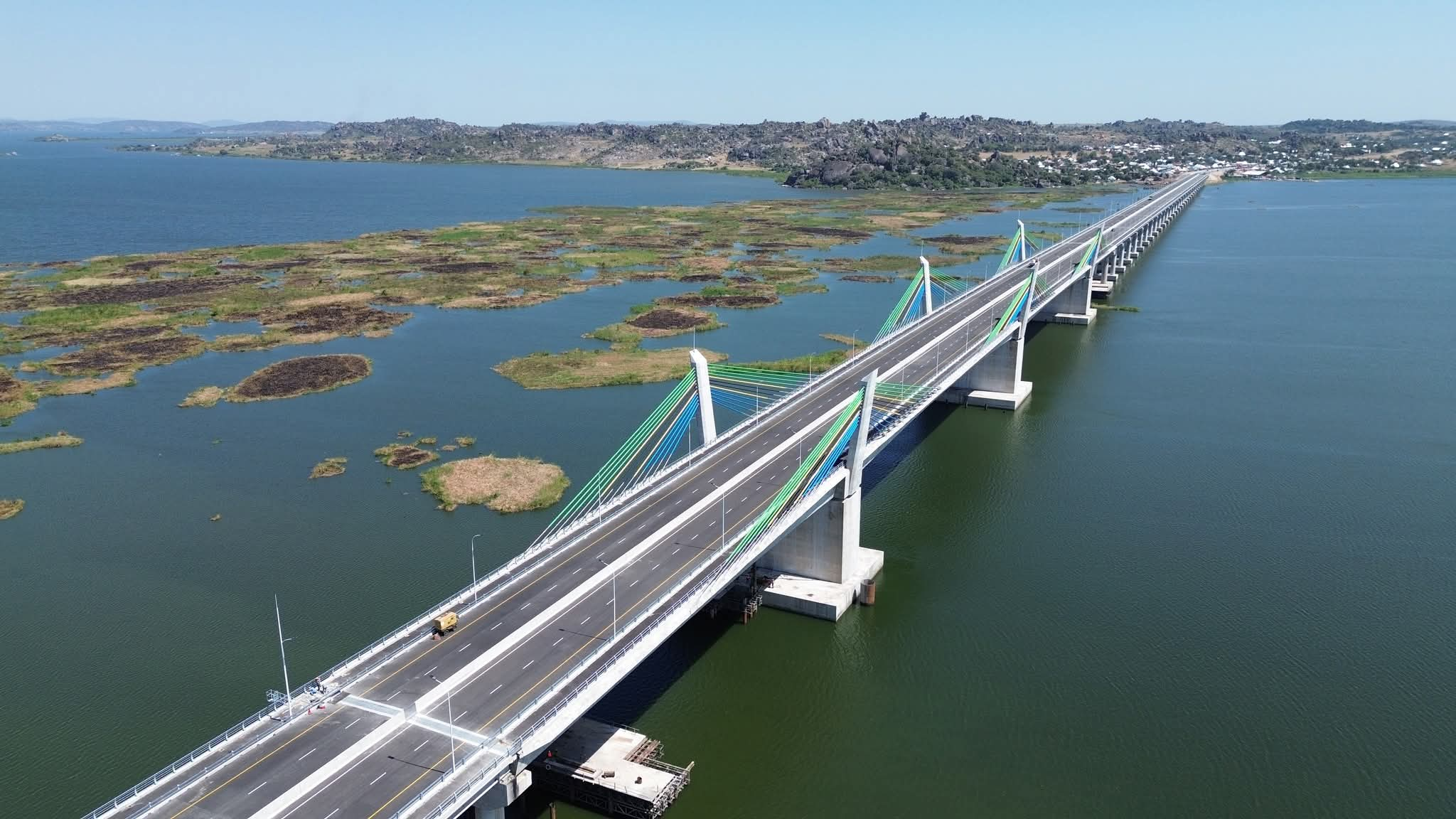END TIME: Is the drying Euphrates River a fulfillment of prophecy?
_1746373664.jpg)
Did you know that, just as the Bible warned in Revelation 16:12, the Euphrates River is drying up, but unlike supernatural explanations such as the Second Coming of Jesus Christ, there is a very real environmental phenomenon of chronic droughts and climate change driving this problem?
The Euphrates is the longest and one of the most historically important rivers of Western Asia. It is the fifteenth-longest river in Asia and the longest in Western Asia, at about 2,780 km (1,730 mi), with a drainage area of 440,000 km2 (170,000 sq mi) that covers six countries. Together with the Tigris, is one of the two defining rivers of Mesopotamia. Originating in Turkey, the Euphrates flows through Syria and Iraq to join the Tigris in the Shatt al-Arab in Iraq, which empties into the Persian Gulf.
The land around these two rivers was historically part of the Fertile Cresent that provided the ideal conditions for settled farming to develop, eventually giving rise to some of the world’s first urban civilizations, such as Mesopotamia.
Although once a fruitful land, the Tigris–Euphrates river system is now drying up at a startling rate. A government report by the Iraqi Ministry of Water Resources in 2021 warned that the rivers could run dry by 2040 due to declining water levels and droughts driven by climate change.

In just a few decades, the flow in the Euphrates-Tigris River system has decreased to almost half of the average annual flow during dry years. Satellite images show that the Tigris and Euphrates River basins had lost 144 cubic kilometers (34 cubic miles) of freshwater from 2003 to 2013, leaving water levels at some of their lowest in recorded history.
Much of this is tightly linked to the wider climate crisis facing the world. The Middle East is considered to be one of the areas most vulnerable to climate change, which is set to make the region’s problems with water scarcity even worse.
Bad news for the environment means bad news for people. Some 60 million people rely on water from the Euphrates-Tigris River system to sustain their lives, predominately in Turkey and Iraq. Since the 2000s, international cooperation over the management of the Tigris–Euphrates Basin has reportedly stalled, fanning the flames of both local rivalries and geopolitical tensions between beholders of the river system.
This coming century has the potential to witness a number of “water wars” where states and militia groups battle for access to water resources. Among the many places across the world where these conflicts are likely to occur, the Tigris-Euphrates complex is one of the most high-stakes, owing to the number of people who live in the region plus the ongoing political instability that persists here.
Along with the risk of conflict and violence, disease is another big concern. An article published in the British Medical Journal in March 2023 investigated how a myriad of health emergencies are brewing in Iraq because people are struggling to get their hands on clean water. This includes a host of water-borne infectious diseases like cholera, as well as chicken pox, measles, and typhoid.

In religion, in Islamic tradition, a hadith of Muhammad (PBUH) states that the Last Hour will not occur until the Euphrates River uncovers a mountain of gold, over which people will fight. Ninety-nine out of every one hundred individuals engaged in this conflict will perish, with each person hoping to be the one who secures the treasure. The hadith also advises that whoever finds this gold should refrain from taking any of it. This event is considered one of the minor signs of the approaching Day of Judgment. However, in the Christian Bible, the Euphrates River is mentioned in Revelation 16:12, in the final book of the New Testament. The author, John of Patmos, writes about the Euphrates river drying up as part of a series of events that foretell the Second Coming of Jesus Christ. The river Phrath mentioned in Genesis 2:14 is also identified as the Euphrates.
Concerning Jeremiah’s prophecy that the Euphrates River will dry up, there are several possibilities: The prophecy was fulfilled by military action in 539 BC when the Persian king Cyrus conquered Babylon. According to the Greek historian Herodotus, Cyrus diverted the water of the Euphrates enough to allow his army to enter through the channels under the city walls (History, 1.189–191). Secondly, the prophecy was fulfilled by drought at some unknown time. Thirdly, the prophecy is being fulfilled now, as the Tigris and Euphrates rivers are diminishing. Fourthly, the prophecy will be fulfilled during the great tribulation, corresponding to the sixth bowl judgment of Revelation 16. Lastly, the prophecy has a double fulfillment: once in the past and again in the future, during the end times.
But concerning John’s vision that the Euphrates will dry up, that will have a future fulfillment. However, the current drying up of the Euphrates is not related to the prophecy of Revelation 16:12, for these reasons: First, the sixth bowl judgment comes near the end of the tribulation. Before the sixth bowl, the Antichrist will rise to power, the two miracle-working prophets will preach, and many terrible judgments will occur. We are not in the tribulation now. Secondly, according to Revelation 18:17–19, Babylon in the end times will do much commerce by ship, suggesting that the rivers in that area are freely flowing during the tribulation, at least for a while. Thirdly, the supernatural drying up of the Euphrates in Revelation 16:12 allows an army from the Orient to march westward. No such army is threatening Israel now.
When it comes time for the Battle of Armageddon, the Euphrates River will indeed dry up. The current water level of the Euphrates, the revealing of ruins and caves, etc., has nothing to do with Revelation 16:12. That simply hasn’t happened yet. People have fretted over the Tigris–Euphrates drying up since Biblical times. Thousands of years on, maybe those fears might soon become reality.
SOURCES: Wikipedia | IFL Science | Got Questions
#penglobalfactfile #EuphratesRiver #climatechange


_1755775186.jpg)
